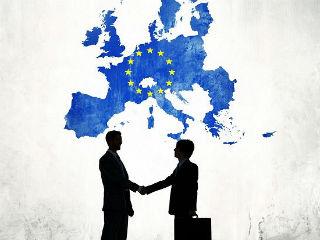As the world lurches on, US President Donald Trump and many others talk tough: everyone has zero-sum games on their mind, while the European Union is the odd man out

Europe’s ability to stand up to the geopolitical transformations will depend on whether it can practice what it preaches. The harsh, populist messages from Poland and Hungary, the presence of Far Right politicians in the Austrian government with their loud anti-immigrant rants and Muslim-bashing, the treatment of refugees and migrants in many member states, erode Europe’s global standing and moral authority.
by
Shada Islam*
With its talk of peace and cooperation, building partnerships, creating networks and preserving the multilateral order, the EU seems out of step with the toxic mood of the times.
For many hardliners in America and Asia, Europe and Europeans are flabby and soft. They don’t spend enough on defence. And all that talk of values and principles, all those statements about human rights, all those promises to engage, discuss and dialogue are tedious and annoying.
True, some EU member states espouse equally harsh views on how to deal with an independent judiciary, media and minorities. But as spotlighted most recently by German Chancellor Angela Merkel and French President Emmanuel Macron at the World Economic Forum in Davos, the EU – collectively – is a robust defender of a liberal, rules-based world order.
Take note of Merkel’s denunciation at Davos of the “poison” of populism, her commitment to finding multilateral solutions to global problems and her insistence that isolationism and protectionism are not the best way to deal with a complex and changing world.
The French leader, meanwhile, made a similarly passionate appeal for environmental protection, gender equality and the need to fend of nationalism and populism. Macron also noted that in the Middle East and in Africa’s Sahel region, “we've got not only to win the war against terrorism but we've got to create conditions for durable peace.”
The Davos crowd of globalists and “citizens of nowhere” lapped it all up of course. Macron received a standing ovation. But Davos is not the real world. The conversation, for example, was very different at the Raisina Dialogue held in Delhi just days before.
The Munich Security Conference in the coming days will probably also offer equally sobering insights into changed geopolitical dynamics, ongoing power shifts and new mindsets across the world.
President Trump’s first State of the Union speech may have focused mostly on domestic policy but, America still matter to the world. It may not be the indispensable power it once was but President Trump is a friend of sorts with other seemingly "strong" men in the world. Like Israeli Prime Minister Benjamin Netanyahu who opened the Raisina Dialogue by claiming: “The weak don’t survive.”
Forget all that talk of “soft power”, agreed others, the world belongs to those who wield “hard power”, have big military machines and are ready and willing to torture, maim and kill to defend their national sovereignty and the nation state.
What a contrast with a Europe which “doesn’t do geopolitics”, is unable to deal with a wily China and a resurgent Russia and waffles on about resilience, global governance and preserving the liberal international order, said critics.
“What is suitable for the EU is hardly imaginable anywhere else in the world,” was the consensus. Europe may see itself as a model and inspiration for others, but it was only a “regional organisation, unable to play a role on the global stage”.
The EU puts up a good defence in these fora. There is talk of Europe’s plans for permanent structured cooperation on security and defence and its multiple military missions and operations. "Sovereign states competing with each other without rules is a recipe for catastrophe,” said former Swedish Prime Minister Carl Bildt in Delhi. The EU’s decision to share sovereignty was based on experience. All the talk of “nation states was 19th Century stuff”.
But here’s the thing: the divide between Europe and a world hooked on the joys of hard power is set to grow wider and deeper. Trump and Brexit have unleashed the demons of populism and nationalism. Europe is in a minority.
Europe’s ability to stand up to the geopolitical transformations will depend on whether it can practice what it preaches. The harsh, populist messages from Poland and Hungary, the presence of Far Right politicians in the Austrian government with their loud anti-immigrant rants and Muslim-bashing, the treatment of refugees and migrants in many member states, erode Europe’s global standing and moral authority.
The EU must also become less defensive, more self-confident and more assertive in protecting and promoting the real liberal democratic order. It must continue to speak out in favour of freedom, fundamental values and basic human rights. It should do so forcefully even in the face of criticism, not just from Russia and China but also from Washington.
The need for a new and inspiring European narrative has never been more urgent and more necessary. Being peaceful – striving for peace, engaging in dialogue, speaking for the vulnerable – is not a sign of weakness. It’s the true strength and power of Europe. And it should remain so. No one said it's easy being the only adult in the room.
*Director of Europe & Geopolitics at Friends of Europe




 By: N. Peter Kramer
By: N. Peter Kramer

